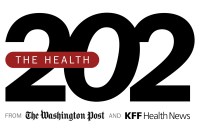California Medicaid Ballot Measure Is Popular, Well Funded — And Perilous, Opponents Warn
Proposition 35, which would use revenue from a tax on managed-care plans to raise the pay of health care providers who serve Medi-Cal patients, has united a broad swath of California’s health care, business, and political establishments. But a newly formed, smaller group of opponents says it will do more harm than good.
Longtime Head of L.A. Care To Retire After Navigating Major Medi-Cal Changes
John Baackes, who steered Medi-Cal’s largest health plan following the Affordable Care Act expansion, and later prepared it for a state overhaul of Medi-Cal, will retire after this year. Baackes believes low payments to doctors and other providers, along with an acute labor shortage, hamper Medi-Cal’s success.
California Bill Would Require State Review of Private Equity Deals in Health Care
Proposed legislation would require the state attorney general’s consent for a wide range of private equity acquisitions in health care. The hospital lobby negotiated an exemption for for-profit hospitals.
Harris’ California Health Care Battles Signal Fights Ahead for Hospitals if She Wins
Kamala Harris fought health care consolidation during her tenure as California’s attorney general, and she could escalate the fight nationally if she wins in November. Still, the pace of mergers has accelerated.
California Leaders Tussle With Health Industry Over Billions of New Dollars for Medi-Cal
Gov. Gavin Newsom wants to pull funds earmarked for new investment in Medi-Cal to help plug California’s $45 billion deficit. A state budget passed June 13 by the legislature largely endorsed Newsom’s plan. Voters could settle the matter in an industry-backed initiative that has qualified for the November ballot.
California Dabbles With Reining in Health Spending
California is now among the states trying to keep health-care costs down by setting spending caps — a task that pits public officials against a deeply entrenched and heavily lawyered set of players. It’s uncertain whether the state can get insurers, hospitals and medical groups to collaborate on containing costs even as they jockey for […]
California Becomes Latest State To Try Capping Health Care Spending
California is the ninth state to set annual health spending targets for the industry. Already hospitals and doctors are voicing resistance to the fledgling Office of Health Care Affordability, even as they avoid overtly opposing its goals.
The Psychedelics-As-Medicine Movement Spreads to California
Ecstasy, “magic mushrooms” and other psychedelic drugs could soon be recognized as therapeutic in California — one of the latest states, and the biggest, to consider allowing their use as medicine. Legislation by state Sen. Scott Wiener (D) and Assembly member Marie Waldron (R) would allow the therapeutic use of psilocybin, mescaline, ecstasy and dimethyltryptamine […]
First Responders, Veterans Hail Benefits of Psychedelic Drugs as California Debates Legalization
California lawmakers have modified a psychedelic drug bill that was vetoed last year, narrowing it to allow only supervised use of psilocybin mushrooms, ecstasy, and other hallucinogens rather than decriminalize more broadly. The current bill would establish new state agencies to regulate the program.
In San Francisco’s Chinatown, a CEO Works With the Community To Bolster Hospital
Jian Zhang, an immigrant from China with a doctorate in nursing, leads the 88-bed Chinese Hospital in San Francisco. The facility faces financial constraints like other independent hospitals, but its strong community support and partnerships have helped it weather tough times.
After Uphill Battle, Company Is Poised for Takeover of Bankrupt California Hospital
American Advanced Management, a steadily growing operator of small hospitals, is expected to get the green light from a bankruptcy court next week to take over the shuttered Madera Community Hospital. Some community groups worry about the company’s track record.
Biden Team, UnitedHealth Struggle to Restore Paralyzed Billing Systems After Cyberattack
The cyberattack on a unit of UnitedHealth Group’s Optum division is the worst on the health care industry in U.S. history, hospitals say. Providers struggling to get paid for care say the response by the insurer and the Biden administration has been inadequate.
Nuevas normas de elegibilidad son un alivio financiero para casi 2 millones de personas en Medi-Cal
Este grupo se equiparará a los aproximadamente 12 millones de otros beneficiarios que no tienen límites de activos.
New Eligibility Rules Are a Financial Salve for Nearly 2 Million on Medi-Cal
Nearly 2 million Medi-Cal enrollees, mainly people who are aged, disabled, or in long-term care, can now accumulate savings and property without limitations and still qualify for the state’s health insurance program for low-income residents. They join an additional roughly 12 million enrollees who already had no asset limits.
Los médicos son tan vulnerables a la adicción como cualquier persona
El alcohol es una droga muy común entre los médicos, pero su fácil acceso a los analgésicos es también un riesgo particular.
Doctors Are as Vulnerable to Addiction as Anyone. California Grapples With a Response.
The Medical Board of California, which licenses MDs, is developing a program to evaluate, treat, and monitor doctors with alcohol and drug problems. But there is sharp disagreement over whether those who might volunteer for the program should be subject to public disclosure and over how much participants should pay.
Bold Changes Are in Store for Medi-Cal in 2024, but Will Patients Benefit?
California’s Medicaid program is undergoing major changes that could improve health care for residents with low incomes. But they are happening at the same time as several other initiatives that could compete for staff attention and confuse enrollees.
Se avecinan cambios para Medi-Cal en 2024, pero ¿beneficiarán a los pacientes?
A partir del próximo año, más de 700,000 inmigrantes sin papeles serán elegibles para una cobertura completa de Medi-Cal.
In New Year, All Immigrants in California May Qualify for Medicaid Regardless of Legal Status
In the new year, California’s Medicaid program will open to otherwise eligible immigrants ages 26 to 49 without legal residency. They will join children, young adults, and adults over 50 enrolled in Medi-Cal through previous expansions to residents lacking authorization. The change is expected to add over 700,000 first-time enrollees.
Los nuevos inscritos se sumarán a más de 655,000 niños, adultos jóvenes de hasta 25 años y adultos de 50 años y más que ya se han registrado en Medi-Cal a través de expansiones anteriores para residentes sin papeles.




















